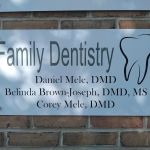What to Do for a Cracked Tooth Before Getting Treatment
We've all been there — a sudden sharp pain in the mouth, a bite that feels off, or even a small crack in a tooth that seems to appear out of nowhere. Cracked teeth are one of the most common dental issues, and while it might seem like a minor inconvenience at first, the truth is that cracked teeth can lead to severe complications if left untreated. I know this firsthand, as I once found myself in a situation where I cracked a molar while eating something hard. Here’s a breakdown of what I learned and what you should do if you ever find yourself with a cracked tooth before you get professional treatment.
1. Understanding Cracked Teeth: Types and Causes
Before jumping into what actions you should take, it’s essential to understand the different types of cracks that can happen in a tooth. There are several types, and each may require different steps to manage the situation until you can see a dentist.
The most common types of cracks include:
- Craze Lines: These are tiny, superficial cracks that are typically harmless and don't cause pain.
- Fractured Cusp: A break in the pointed part of the tooth, often caused by chewing hard foods. It might cause some discomfort.
- Split Tooth: This is a more severe crack that goes from top to bottom and can be extremely painful. Immediate dental care is essential.
- Vertical Root Fracture: This type of crack occurs below the gumline and may not always be visible. It's a serious condition that requires prompt treatment to save the tooth.
In my case, I had a fractured cusp, which didn’t seem like a big deal at first, but I learned quickly how important it is to handle any crack in a tooth with care. Some cracks might not show immediate symptoms but can worsen over time, potentially leading to infection or tooth loss. The key is knowing what to do in the moment.
2. Initial Steps to Take When You Crack a Tooth
If you’re ever in a situation like I was, where you suddenly notice a crack in your tooth, here’s what you need to do to avoid worsening the damage and manage the pain until you can see a dentist.
Step 1: Rinse Your Mouth
The first thing you should do is rinse your mouth with warm water to clean the area. This will help remove any debris that might have gotten lodged in the crack and reduce the risk of infection. Make sure the water isn’t too hot or too cold, as extreme temperatures could irritate the sensitive nerves in the tooth.
Step 2: Apply a Cold Compress
If you’re experiencing pain, apply a cold compress to the outside of your cheek near the affected area. This helps reduce swelling and numb the pain. I personally found this incredibly helpful when my tooth was throbbing after the initial crack.
Step 3: Avoid Certain Foods
One of the most important things to remember is to avoid chewing on the side of the cracked tooth. Hard, chewy, or sticky foods can worsen the crack or even cause it to spread. When I cracked my tooth, I found that softer foods like yogurt or smoothies were much easier to manage while I waited for my appointment.
Step 4: Use Over-the-Counter Pain Relief
If the pain becomes unbearable, taking an over-the-counter pain reliever like ibuprofen or acetaminophen can help. Just make sure to follow the dosage instructions carefully. I had to rely on this method as I waited to get into my dentist's office. Remember, pain relievers don’t treat the problem itself, but they can certainly help manage the discomfort in the meantime.
3. What Not to Do When You Have a Cracked Tooth
While there are things you can do to manage the situation, there are also things you should absolutely avoid when dealing with a cracked tooth. After my own experience, I want to share the things that can worsen the issue and delay proper treatment:
Don't Delay Seeking Professional Help
While it's important to manage the pain and prevent further damage in the short term, you should never delay seeing a dentist. Cracked teeth can lead to infections or even tooth loss if not treated properly. The sooner you can get treatment, the better the outcome will be. I waited a couple of days, which I later regretted. Don’t make the same mistake!
Don’t Try to Fix It Yourself
Some people make the mistake of trying to fix the crack themselves, using dental wax or home remedies. This can actually make things worse and prevent your dentist from properly evaluating the tooth. In my case, I didn’t try to fix it myself, but I did notice people attempting to use glue or other temporary fixes in the waiting room at the dental office. It's best to leave it to the professionals.
Don’t Use the Cracked Tooth to Bite Into Anything
Even if you’re hungry and it’s tempting to chew on something, avoid using the cracked tooth for biting into food. This can cause the crack to worsen or cause more pain. I made the mistake of chewing on the opposite side, but it’s essential to give that tooth a break until you can see a dentist.
4. The Road to Recovery After Treatment
Once you’ve seen your dentist, they’ll likely recommend one of several treatments depending on the severity of the crack. For example, they may suggest a dental crown, a filling, or in more severe cases, a root canal. I had to get a crown placed on my cracked molar, which protected it and restored its function.
While I was initially nervous about the procedure, I found that the recovery process was much smoother than I had anticipated. After the crown was placed, the pain was gone, and I was able to go back to eating normally without worry. The key to a successful recovery is following your dentist’s instructions and maintaining good oral hygiene.
5. How to Prevent Future Cracks
After experiencing a cracked tooth, I became much more cautious about what I chewed and how I cared for my teeth. Here are a few preventive measures I took to avoid cracking another tooth:
- Wear a Mouthguard: If you play sports or grind your teeth at night, a mouthguard can protect your teeth from damage.
- Be Careful with Hard Foods: Avoid chewing on hard candies, ice, or other things that could cause your teeth to crack.
- Visit Your Dentist Regularly: Regular checkups help catch potential problems early, before they develop into more serious issues.
Learning from my own experience, I now take extra care to protect my teeth and seek prompt treatment whenever a problem arises. I encourage anyone with a cracked tooth to take action immediately and get the proper care needed to avoid long-term complications.







 Matthew J. Walters DDS0.0 (0 review)
Matthew J. Walters DDS0.0 (0 review) Hometown Family Dental4.0 (133 review)
Hometown Family Dental4.0 (133 review) Mele Family Dentistry4.0 (21 review)
Mele Family Dentistry4.0 (21 review) Krouth Dental4.0 (25 review)
Krouth Dental4.0 (25 review) Central Park Dental Aesthetics4.0 (129 review)
Central Park Dental Aesthetics4.0 (129 review) Orangecrest Dental Group4.0 (54 review)
Orangecrest Dental Group4.0 (54 review) The Importance of Oral Health Education During Pregnancy for a Healthy Pregnancy
The Importance of Oral Health Education During Pregnancy for a Healthy Pregnancy Best Tips for Brushing Your Teeth Properly for Healthy Gums: Essential Techniques for Oral Health
Best Tips for Brushing Your Teeth Properly for Healthy Gums: Essential Techniques for Oral Health Why Skipping Dental Checkups Can Lead to Bigger Oral Health Problems
Why Skipping Dental Checkups Can Lead to Bigger Oral Health Problems Advantages of Porcelain Dental Restorations
Advantages of Porcelain Dental Restorations How Can Diabetes Cause Tooth and Gum Problems? Preventing and Managing Oral Health Issues
How Can Diabetes Cause Tooth and Gum Problems? Preventing and Managing Oral Health Issues Healthy Habits for Promoting Good Oral Health and Hygiene: Tips for a Healthy Smile
Healthy Habits for Promoting Good Oral Health and Hygiene: Tips for a Healthy Smile